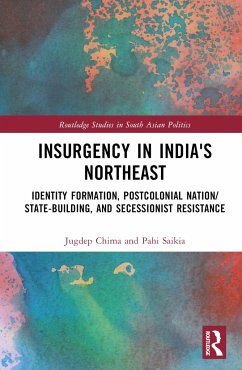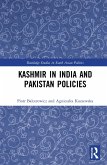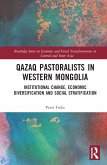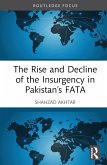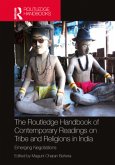Insurgency in India's Northeast provides a systematic analysis of every major secessionist group and insurgency in the region within a unified and original explanatory framework, focusing primarily on the postcolonial period.
This book presents a parsimonious analytic narrative involving a rich sequential account of the historical evolution of Mizo, Naga, Meitei, and "ethnic Assamese" identities from precolonial to colonial to postcolonial times. Avoiding essentialist or primordialist arguments, the chapters in the book demonstrate how ethnic/(sub)national identities are dynamic and malleable phenomenon, not immutable natural givens. In particular, it argues that the postcolonial Indian state has attempted to integrate these ethnic/sub-state national groups into the Indian Union through a combination of democratic accommodation/consociationalism and hegemonic/violent control, strategically designed to encapsulate their evolving (sub) national identities into the overarching state-sponsored Indian nationality.
Through this book, readers will gain a rich understanding of the dynamics of ethnicity/ nationality and the nation/state-building process in postcolonial India. It will be of interest to researchers in the fields of Asian studies, ethnicity, nationalism, separatism, security studies, border studies, and international relations.
This book presents a parsimonious analytic narrative involving a rich sequential account of the historical evolution of Mizo, Naga, Meitei, and "ethnic Assamese" identities from precolonial to colonial to postcolonial times. Avoiding essentialist or primordialist arguments, the chapters in the book demonstrate how ethnic/(sub)national identities are dynamic and malleable phenomenon, not immutable natural givens. In particular, it argues that the postcolonial Indian state has attempted to integrate these ethnic/sub-state national groups into the Indian Union through a combination of democratic accommodation/consociationalism and hegemonic/violent control, strategically designed to encapsulate their evolving (sub) national identities into the overarching state-sponsored Indian nationality.
Through this book, readers will gain a rich understanding of the dynamics of ethnicity/ nationality and the nation/state-building process in postcolonial India. It will be of interest to researchers in the fields of Asian studies, ethnicity, nationalism, separatism, security studies, border studies, and international relations.
"Ethnicity remains a potential driver of both political violence and insurgent movements. As such, understanding the genesis of ethnic conflict and how it can be used for political purposes remains critical. Insurgency in India's Northeast offers some very useful insights into the process in the area, and it is recommended for its case studies on a very complicated region."
-- Lawrence E. Cline, in Small Wars & Insurgencies (26 Sep 2024)
"Insurgency in India's Northeast: Identity Formation, Postcolonial Nation/State Building, and Secessionist Resistance, by political scientists Jugdep S. Chima and Pahi Saikia, offers an important intervention into the expanding scholarship on Northeast India. [...] The book makes a significant contribution to the fields of Northeast India studies, borderland studies, and the broader scholarship on insurgencies and postcolonial nation-state formation in the South Asian region. Through a "macro-historical" analysis of identity formation and secessionist movements, the authors offer valuable insights into these complex dynamics. [...] The book provides a robust theoretical understanding of the region and its ongoing struggles."
-- Kunal Nath Shahdeo, Indian Institute of Technology, Mumbai. Pacific Affairs
-- Lawrence E. Cline, in Small Wars & Insurgencies (26 Sep 2024)
"Insurgency in India's Northeast: Identity Formation, Postcolonial Nation/State Building, and Secessionist Resistance, by political scientists Jugdep S. Chima and Pahi Saikia, offers an important intervention into the expanding scholarship on Northeast India. [...] The book makes a significant contribution to the fields of Northeast India studies, borderland studies, and the broader scholarship on insurgencies and postcolonial nation-state formation in the South Asian region. Through a "macro-historical" analysis of identity formation and secessionist movements, the authors offer valuable insights into these complex dynamics. [...] The book provides a robust theoretical understanding of the region and its ongoing struggles."
-- Kunal Nath Shahdeo, Indian Institute of Technology, Mumbai. Pacific Affairs

